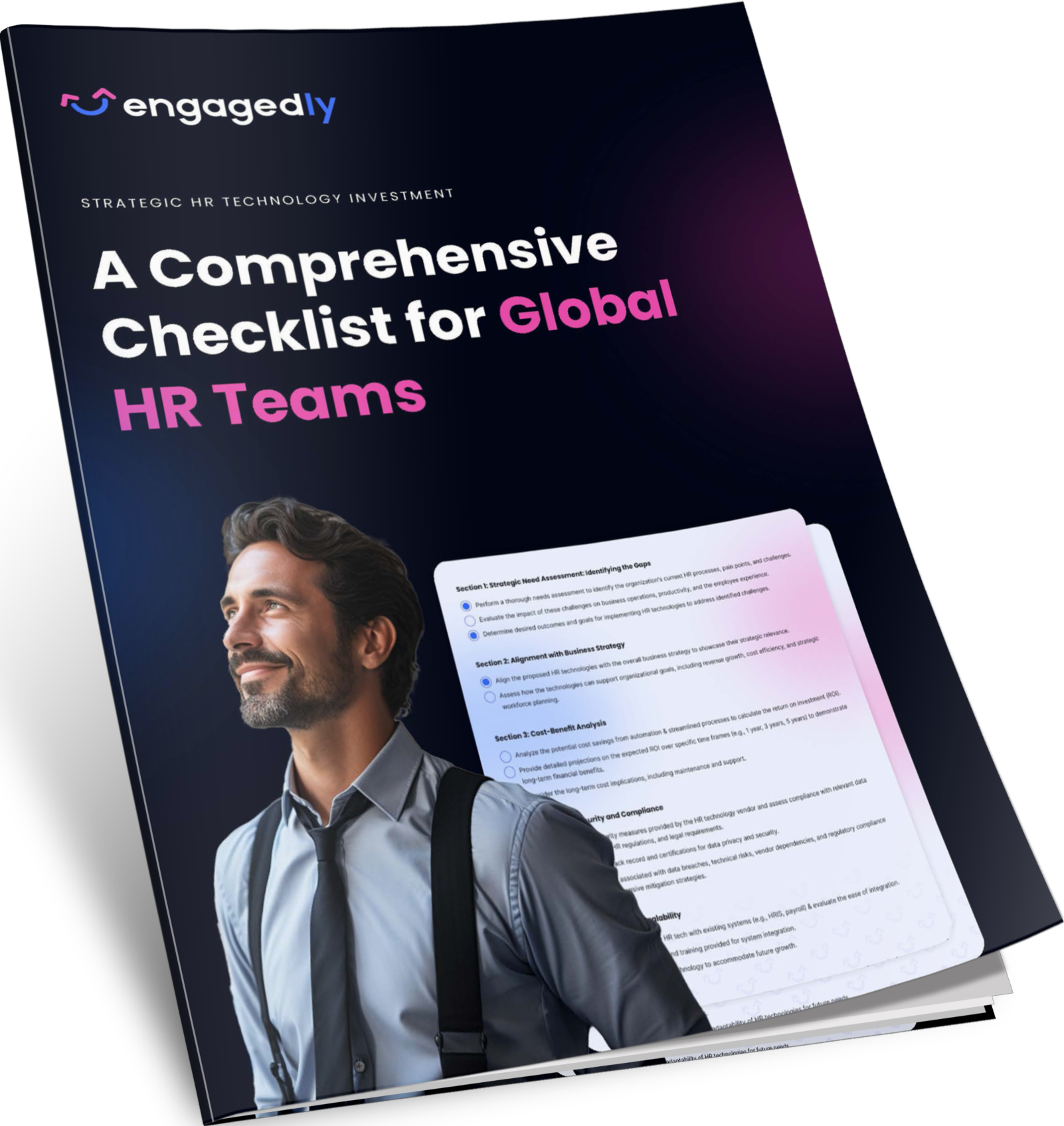As the world of work continues to evolve at a rapid pace, one thing remains constant: the critical role that Human Resources (HR) plays in organizations. However, with ongoing technological advancements and changing employee expectations, HR professionals are facing new challenges and opportunities like never before. From managing remote teams to addressing diversity and inclusion, HR is adapting its roles and strategies to stay ahead of the curve. In this blog post, we will explore seven evolving roles within HR and discuss effective strategies for securing them in the future of work. Whether you’re an aspiring HR professional or seasoned veteran, get ready to discover what lies ahead for this crucial function in today’s dynamic workplace landscape.
7 Evolving HR Roles
1. Chief People Scientist
A chief people scientist manages every facet of human resource management with an emphasis on creating and preserving company culture. They dive further into their findings and create solutions supported by data that improve employee outcomes and experiences.
Responsibilities
- Talent analytics: To guarantee that the company draws and keeps top talent, they develop plans for finding, attracting, and employing qualified candidates from a wide pool.
- Employee engagement surveys: Chief people scientists use employee engagement surveys to identify how motivated and engaged your employees are.
- Future of work research: Oversee the hiring, interviewing, and evaluating processes as well as all other parts of succession planning.
Also Read: AI Ethics: Implications for Human Resource Leaders
Strategies to secure this role:
- Data science skills: Chief people scientists should possess data science skills to analyze data and trends, making necessary changes accordingly.
- HR knowledge: The chief people scientist is responsible for managing all aspects of human resources, necessitating the recruitment of someone with extensive HR experience and knowledge.
- Business acumen: The industry standards and business trends must be thoroughly understood by the chief people scientist.
2. Employee Experience (EX) Designer
Based on findings from a Gartner survey, a mere 13% of employees express complete satisfaction with their overall work experiences. An employee experience designer assists companies in creating personalized and positive employee experiences, resulting in a happier workforce.
Responsibilities
- Onboarding: The EX designer is responsible for providing all necessary information to new hires and ensuring their seamless integration into the workplace.
- Development programs: The EX designer should be aware of the skill requirements of the staff and oversee development initiatives aimed at reskilling or upskilling them.
- Workplace culture initiatives: EX designers should strive to create a positive work environment, ensuring employee happiness and engagement.
Strategies to secure this role:
- Design thinking skills: They have to be skilled in design thinking since you can become a more creative problem solver by learning design thinking techniques.
- HR expertise: They should have expertise in various HR functions such as recruitment, training, retention, employee satisfaction, and more.
- Understanding employee needs: The EX designer should understand the various needs of employees and always strive to create a culture of trust within the organization.
3. Learning & Development Specialist
Learning and development (L&D) experts create an atmosphere that is favorable to continuous learning and skill improvement so that individuals can realize their full potential and businesses may evolve and adapt over time.
Responsibilities
- Upskilling programs: The responsibility of an L&D specialist is to upskill people for specialized technical tasks and to strengthen their soft skills.
-
- Microlearning opportunities: Microlearning can boost learner engagement by 50% and knowledge retention by 80%, making it crucial for L&D specialists to offer opportunities to enhance employee engagement and knowledge.
- Career development coaching: As part of their professional growth, L&D specialists frequently provide coaching and mentoring to employees.
Strategies to secure this role:
- Instructional design skills: To build successful and engaging learning experiences based on the objectives and goals of the learners and the organization.
- Knowledge of emerging technologies: Knowledge of the latest innovations and trends, including artificial intelligence, virtual reality, etc., will be helpful.
- Understanding of learning psychology: They should also understand the process of learning new information and skills based on their experiences, learning styles, and more.
4. Remote Work & Flexibility Advocate
An advocate for remote work may be someone who gives remote workers more authority, assists organizations in adopting a remote-first mentality, or is a champion of remote work models and flexible work arrangements in the workplace.
Responsibilities
- Develop and implement remote work policies: Develop and implement remote work policies that benefit both the organization and employees.
- Support remote teams: They should support remote teams by understanding their needs and providing them with the best solutions.
- Advocate for work-life balance: The advocate is tasked with ensuring the well-being and work-life balance of remote or flexible workers.
Strategies to secure this role:
- Project management skills: They should be proficient in all aspects of project management, including planning, organizing, executing, and wrapping up a project.
- Communication skills: An advocate for remote work should be able to concisely and effectively convey the objectives or expectations of the company.
- Understanding of different work styles: Remote work advocates should understand the varied work styles and support the employees accordingly.

5. Diversity, Equity, & Inclusion (DE&I) Champion
More than half of workers (54%) think their company or organization pays enough attention to growing DEI. To help retain such numbers, Diversity, Equity, and Inclusion leaders foster an inclusive and equitable work environment that values and supports individuals from diverse backgrounds.
Responsibilities
- Develop and implement DEI initiatives: Creating and carrying out DEI programs that support equal opportunities, non-discrimination, and inclusivity at all levels.
- Unconscious bias training: The individual will be responsible for educating people about unconscious bias and how it can hinder an organization’s ability to develop.
- Diversity recruitment strategies: Responsible for developing diversity recruitment tactics to guarantee that individuals from various backgrounds feel welcomed and comfortable.
Strategies to secure this role:
- Understanding of DE&I principles: Should understand the importance of DEI and its principles in a broader sense.
- Strong communication skills: Should possess strong communication skills to communicate the importance of diversity initiatives effectively.
- Ability to build relationships: The individual should be able to build healthy work relationships with varied people regardless of their gender, religion, background, and so on.
6. Employee Well-being & Mental Health Champion
Individuals who are committed to raising mental health awareness and offering assistance in the workplace are known as mental health champions.
Responsibilities
- Develop wellness programs: Create a wellness policy or make use of wellness programs to motivate staff members to look after their mental health.
- Provide mental health resources: These individuals are responsible for providing mental health resources by creating and distributing educational materials on mental health.
- Support employee well-being initiatives: Support employee well-being initiatives such as physical and mental fitness, balanced work, healthy eating, and more.
Strategies to secure this role:
- Public health knowledge: Should possess knowledge about public health and well-being activities to enhance employee well-being.
- Understanding of mental health: An understanding of mental health and a willingness to help coworkers who are experiencing mental health issues.
- Strong communication skills: They must actively listen to comments and concerns and efficiently communicate information to management and staff.
7. HR Technology Specialist
A human resources technology specialist assists businesses in integrating new tools and HR technologies to streamline processes.
Responsibilities
- Evaluate and select HR technology solutions: They are in charge of the setup, customization, upkeep, evaluation, selection, and update of HR technology solutions.
- Manage data security and privacy: As HR technology specialists, they are responsible for ensuring and managing data security and privacy.
- Train employees on new technologies: It is their responsibility to keep themselves updated and train employees on new trends and technologies.
Strategies to Secure
- Technical skills: An HR specialist’s role is technical, so they should possess technical skills and competencies.
- Understanding of HR technology trends: They should understand the new and emerging HR technology trends.
- Ability to collaborate with IT teams: They should possess the ability to collaborate with IT teams effectively.
Strategies to Secure These Roles
Some of the strategies to secure the roles discussed above include:
Upskill and reskill current HR professionals
Reskilling and upskilling are crucial in today’s workplace. It’s vital to train current HR experts to safeguard the future of HR.
Invest in talent acquisition strategies for specific roles
The future of HR is rapidly changing. Organizations now look for modern and smart solutions in the workplace. Thus, it is necessary to invest in talent acquisition strategies that fulfill the organizational need of finding the top talent.
Develop strong employer branding and employee value proposition
Organizations can differentiate themselves and retain staff by creating a great work environment with strong employer branding and employee value propositions.
Offer competitive salaries, benefits, and work-life balance
Organizations should prioritize offering competitive salaries, benefits, and work-life balance to protect HR roles, ensuring employees enjoy a positive work environment and a well-rounded career.
Establish a culture of ongoing growth and learning
A culture of ongoing learning fosters innovation. Establishing a culture of continuous learning is crucial for organizations to remain competitive and cope with emerging issues.
Summing Up
As we navigate the dynamic landscape of the future, the role of human resources continues to evolve, presenting exciting opportunities for growth and innovation. The seven evolving roles and strategies outlined in this exploration signify a shift towards a more strategic and employee-centric HR approach. By embracing technologies, fostering a culture of continuous learning, and prioritizing employee well-being, HR professionals can position themselves as indispensable architects of organizational success. It is imperative to adapt and proactively respond to the changing needs of the workforce, ensuring that HR remains at the forefront of driving positive organizational change.

Frequently Asked Questions
How can HR professionals adapt to the changing landscape and stay relevant in their roles?
HR professionals can stay relevant by embracing technological advancements, cultivating a culture of continuous learning within their organizations, and prioritizing employee well-being. By staying abreast of industry trends and aligning HR strategies with the evolving needs of the workforce, professionals can position themselves as vital contributors to organizational success.
What role does technology play in the future of HR?
Technology plays a crucial role in the future of HR by automating routine tasks, enhancing data analytics for better decision-making, and facilitating a seamless employee experience. HR professionals should leverage technology to streamline processes, allowing them to focus on strategic initiatives that contribute to the overall success of the organization.
How can HR balance the demands of employee well-being and organizational goals?
Balancing employee well-being and organizational goals involves creating policies that support work-life balance, implementing well-being programs, and fostering a culture of open communication. HR professionals should align employee initiatives with overarching organizational objectives to ensure a harmonious and productive workplace.
Subscribe To The Engagedly Newsletter
Author
Srikant Chellappa
CEO & Co-Founder of Engagedly
Srikant Chellappa is the Co-Founder and CEO at Engagedly and is a passionate entrepreneur and people leader. He is an author, producer/director of 6 feature films, a music album with his band Manchester Underground, and is the host of The People Strategy Leaders Podcast. He is currently working on his next book, Ikigai at the Workplace, which is slated for release in the fall of 2024.








